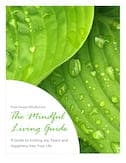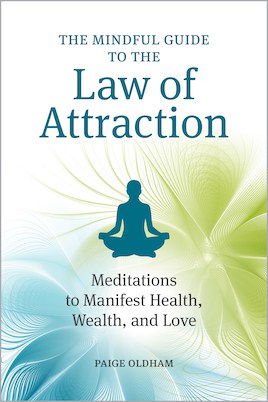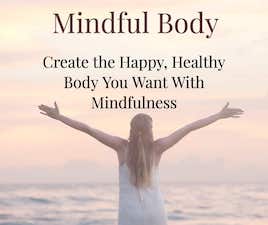The recent events around the globe have thrown us into an unprecedented state of uncertainty. It seems that no one can plan anything because we have no idea what tomorrow, much less next week or next month, will bring.
This uncertainty can create anxiety because we have seemingly lost our ability to control many aspects of our lives. Having a sense of control helps us feel better about ourselves. But, why?
A false sense of control
There is actually very little that we can control, global chaos or not. While we may exert our wishes on the world, we can’t control how the world – including other people – will respond. We can only control our responses to our environment.
“Incredible change happens in your life when you decide to take control of what you do have power over instead of craving control over what you don’t.” ~ Steve Maraboli
If someone says something mean to you, you have many choices in how to respond. You can ignore them. You can feel compassion for them because they might be having a particularly bad day. You can take it personally, get mad and let it eat at you for a long time. You could be angry at the other person and say something mean back, potentially regretting your action later.
You have many choices in how you will respond, but you have no ability to control the other person. You can’t make them take back their unhelpful comment. You can’t make them apologize. You can’t make them do anything.
The choices you make are based on your unique lifetime of experiences and the related beliefs you hold about how things are supposed to be. Know that you are the only person in the world with your unique history of experiences and beliefs so your opinion of what “should” happen may be very different from another person’s opinion.
Detach from the outcome
Because you have no control of what will happen as a result of your actions, the next logical step is to detach from the outcome.
You really want something to happen so you take a series of actions and hope for the best. You set expectations that things will work out the way you wanted. As I’ve mentioned in a previous article: Expectations are the root of all negative emotions. Things don’t work out quite as you expected so you’re upset. You are frustrated and angry that people and circumstances didn’t adhere to your will.
Now you’re so caught up in what went wrong, it’s difficult to focus on your next steps. Because you were attached to a certain outcome, your world is rocked when things didn’t work out as you wanted. How often are all of your expectations met? How often does your desired outcome happen exactly as you planned? If you’re like most of us, it’s not very often.
“The reason many people in our society are miserable, sick, and highly stressed is because of an unhealthy attachment to things they have no control over.” ~ Steve Maraboli
The key to avoiding this swirl of negative emotions is to release your attachment to the outcome and accept whatever happens without dwelling on it. This doesn’t mean you’re a push-over. There’s more to it. Here’s an excerpt from my book, The Mindful Guide to the Law of Attraction that helps to explain:
Non-striving
We all want to be happy. Unfortunately, most feel, “I’ll be happy when …” The concept of non-striving can be described as, “It’s about the journey, not the destination.” It’s much easier to practice mindfulness and be happy if we’re focused objectively on the here and now and not solely focused on what we’re striving for—that thing that we think will make us happy (yet rarely does). Striving keeps us focused on what we lack. It keeps us focused on the future. It creates blinders to the beauty of the present moment and blocks acceptance of who we are. To live a life of non-striving is not to give up your hopes and dreams. Instead, non-striving can help you appreciate the present in a way that naturally guides you to the place you want to go.
Acceptance
Acceptance means finding peace in the way things are—and it’s very closely tied to awareness. How can we accept our current situation if we aren’t aware of the abundance that’s already there? The opposite of acceptance is resistance. Instead of lamenting about how things “should” be, try asking yourself how you can immerse yourself in the moment. When you begin to notice feelings of anxiety, frustration, and anger, realize that you have a choice to not feel that way. You can choose to accept what you’re frustrated about, see the positive side (which you may conveniently ignore in the moment), and make new choices. It’s from the point of acceptance that change is possible. Acceptance doesn’t mean apathy, naiveté, or false hope. It means dropping resistance and being open to what potential may come. It’s saying, “Okay, this is the way things are. Now what am I going to do about it—and what might be the silver lining?”
Being upset about how things are is focusing on what’s wrong. With a quick change in focus, you can see the same situation and choose to focus on what’s right about it. What you focus on grows.
Gratitude unlocks the door
Focusing on the good is the first step in a gratitude practice. Gratitude is the key to seeing the abundance that you already have. Even when things aren’t going the way you wanted, it’s possible to see how what is happening is good. For example, while there are definitely negatives related to the current global crisis, I’m incredibly grateful for the changes it has brought in how the world operates. My family spends more quality time together, and, as a result, we’ve become even closer. Working from home (something I’ve done and have been a huge proponent of for over the past twenty years) is now a new norm. We’ll probably all get fewer colds and cases of flu going forward with the increased awareness around spreading germs. I could think of much more to be grateful for. How about you?
Below is the Happiness Meditation from my book, The Mindful Guide to the Law of Attraction. It can help you find your happiness when you’re attached to an outcome that may not have come to fruition.

Create the life you want: Combine the law of attraction with mindfulness
The law of attraction suggests that our positive or negative thoughts bring about positive or negative experiences. My latest book, The Mindful Guide to Law of Attraction, pairs that belief with the powerful practices of mindfulness. Through intentional breathing, writing, and engaging, you’ll hone a method for manifesting health, wealth, and love―the elements of happiness.
Let the law of attraction work for you by adopting its basic steps of identifying and visualizing the things you desire. Then use 45 practical meditation techniques included in the book to achieve awareness. By concentrating your positive energy on obtaining your wants, you’ll give yourself permission to receive them.
To your happiness! ~Paige

You can find this book at Amazon, Barnes & Noble, Books-A-Million, and Indigo.









 The Mindful Living Guide
The Mindful Living Guide




Really very interesting to read.
Really very interesting to read.
Hey
Thank you! What a beautiful meditation that helps us connect with our true self, where real happiness exists.?There are so many good points about mindfulness in this piece,
Your post is awesome nd very helpful.mindfulness and meditation helped me a lot. it keeps me satisfied. i started doing it a month back. i can easily see the little changes in my behavior .
thank you
-sweety
Loved this. Gratitude is amazing!
Hi Paige! I recently tried this gratitude technique. And I can say that it helps me with my anxiety and concern. I began to worry less about things that I can not control. This mindfullness helps me. I wake up in the morning and mentally thank the world that I can do this. It is very pleasant to realize how many good things are in the world and how many such things can be thanked for. This is a very good idea, thanks for sharing this!
?There are so many good points about mindfulness in this piece, Paige. Thank you! What a beautiful meditation that helps us connect with our true self, where real happiness exists.
Interesting….I’ve learned to have “SMART” goals and the expectation is I or we will achieve this outcome-it’s the way to stay on track and get things done…I really don’t know how I can detach from the outcome since I’ve created the goal or the project/task is tied to our office goal. I am struggling with frustrations mostly at work -where I feel like there are so many things going wrong so if I’m understanding this concept….your book could be a real game changer. I love learning and improving so it would be amazing to win your book!
I am responsible for employee wellness at my local university and would love to be able to share this information with employees who are struggling during this time of quarantine. I know it would be a wonderful resource for me personally as well.
Mindfulness makes you a negative person to positive and your last email about the experience with your husband changed my thinking and thank you
Gratitude is the mindful thing that works well in my life Paige. And as I know I’ve said before bringing the elevated frequency of gratitude into your world through simple mindfulness is a gift that will radiate blessings over your life. Mindfulness matters and I thank you for this beautiful reminder.
I love all these suggestions, Paige. The mindfulness practices you suggest here switch the part of our brain that is in control, from the amygdala fear center to the frontal lobe thinking brain. I have found mindfulness to really help with my anxiety at the moment and overall. Thank you for these reminders.
I work in healthcare and have recently started practicing mindfulness. It is helping me but I could always use more help! I would be excited to try this new book.
Thank you!
As a people leader in a large organization, this book could help with my own mental health as well as providing guidance to those I work with.
Mindfulness is hard for me, as I suffer from ADHD as a child and now as an adult. My son’s have ADHD both at different levels, and a husband who is challenged everyday with our minds and how off track they can be. He is challenged as he is in the military and things are done from A to Z in order, linear. You can imagine what our brains and sporadic nature does to his happiness. I am hoping that maybe if I read this book and read exerts to my kids and husband we can find mindfulness in this crazy time. We seem to have our ups and downs and would love to be able to find a tool to help when we are in the downs to help bring us back up. I like what you said about seeing the good in every situation and I try to do that and talk to my kids about it, however, they seen ti want to blame and live in the whoa is me phase. Even when I tell them that is not healthy, they just shrug their shoulders. Maybe, just maybe they will enlighten me and practice some mindfulness.
I have ADHD as well, and I have two teenage sons who also have it, so I understand. Mindfulness has always been hard for us, too. While I’m no longer married, I do have friends and family members with more linear mindsets, so I get that aspect of it, too. Even my best friend has a hard time with me sometimes, and she’s a creative spirit like me! I wish you the best of luck. Maybe we’ll eventually get the hang of it all! ?
mindfulness and meditation helped me a lot. it keeps me satisfied. i started doing it a month back. i can easily see the little changes in my behaviour . a month back i was lost, frustrated , short tempered, easily attachable to the unhealthy things/person. your site helped me a lot i searching the real me. i think this book will help me more in improving myself by bringing peace inside me.
I am retiring from the school system. I feel this book will support my
new venture to explore new avenues. To breath each day and get
a sense of calm about myself and the world around me. I would
use this as a road map.
To understand and accept that which I cannot change.
This is an era of distractions…workplace tension,personal life problems,health issues,rat race,social medias and the list is so long…in the midst of these,its very difficult to introspect ourselves and unleash the boundless energy hidden within our mind..I think your book will help me to master over the techniques to know my mind and to with fulfil my dreams in life being the master of my innerself….thanking you…waiting for your book..
I intend to know what inside Life….
Letting go of expectations is a relatively new way of living for me as before I would make plans for the future like booking a train ticket in advance or arrange an outing or meetup and expect nothing to go wrong.
If it went wrong I could accept it with not too much negativity but the bigger plans that can go wrong that really mess up your life often cause a downward spiral from which it is hard to climb out off.
That is the reason that by following your excellent recommendations and by practicing the meditation, it can help us come to a peaceful place and not have to be tormented.
I’m sure if we were to read your book we will be able to navigate our lives better and have a life of love, peace and gratitude.
I practice being mindful and grateful on a regular basis. I feel that your book would help me focus to be more effective.
Still struggling with mindfulness. My daughter was trying to learn this before she passed away last year and got me into all the mindfulness and meditation which I consider an art. It definitely requires practice and focus.
Meditation and mindfulness is the key to discover and focus on what is important in our lives. But meditation is not easy and one must have the right tools/guides. I am always looking for those and I believe this book is one of them. An autographed one would make it so much more powerful and personal 😉 Keep up the good work.
I am remote teaching, and I could really use a book on manifesting to reach my students.